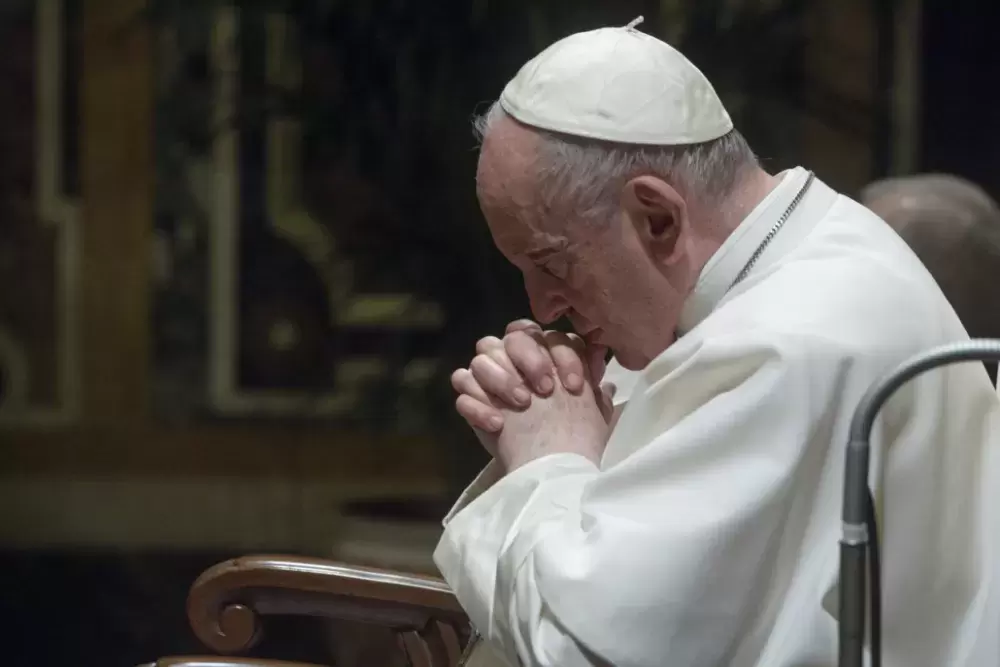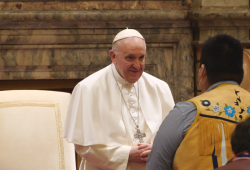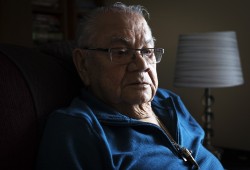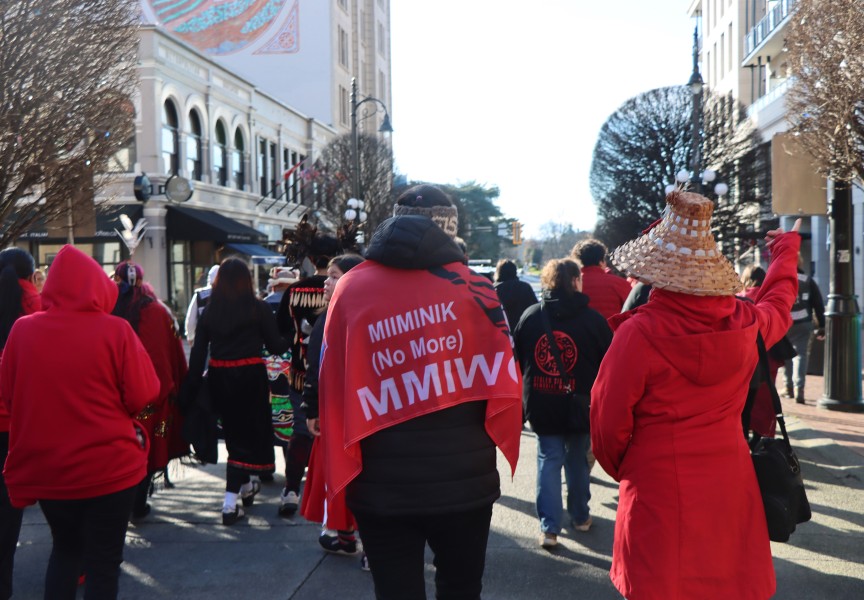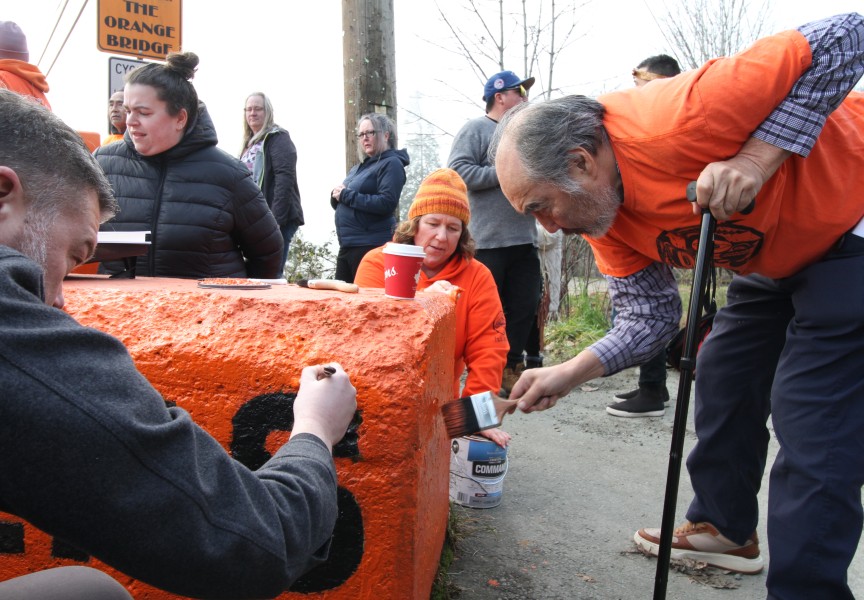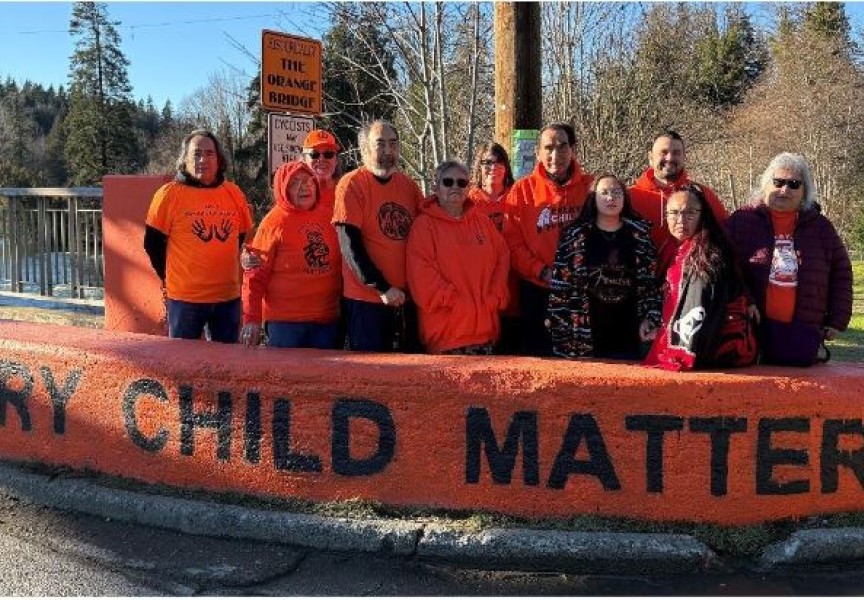Pope Francis is set to tour three regions in Canada between July 24 and 29 on what is being called a historic journey of “healing and reconciliation.”
Earlier this year at the Vatican, the Pope apologized to Indigenous representatives from across Canada for “the deplorable behaviour” of members of the Catholic Church who caused harm to Indigenous communities through the residential school system.
“I feel shame,” he said in his apology speech on April 1.
“Shame and sorrow” for the abuse and lack of respect shown for Indigenous identity, culture and spiritual values, the Pope said.
The last of Canada’s 139 residential schools didn’t close until the late 1990s. During the 19th and 20th centuries, it’s estimated that over 150,000 Indigenous children were forced into the system, which tried to strip them of their language, culture and heritage. Many never returned.
Barney Williams was only 6 years old when he was taken from his home in Opitsaht, on Meares Island, and transported to the Christie Residential School.
To this day, he is triggered by the years of abuse he endured while attending the school on Vancouver Island.
Williams never spoke of his abuse, hiding it from everyone he knew – including his wife – until he bared his soul to a set of strangers while giving his testimony during a hearing for the Truth and Reconciliation Commission in 2005.
The 82-year-old, who has been living with the impacts of his time at residential school his entire life, said an apology “should have been made a long time ago.”
“It’s about time,” he said.
In May, Prime Minister Justin Trudeau issued a statement embracing Pope Francis’ visit to Canada.
“I welcome the news of his holiness Pope Francis’ visit to Canada this summer to formally deliver the Roman Catholic Church’s apology for its role in operating residential schools that caused lasting pain and suffering to Indigenous peoples in this country,” Trudeau wrote.
The formal, in-person apology to survivors and their families responds to one of the Truth and Reconciliation Commission’s calls to action, Trudeau said.
This is an “important and necessary step,” he added.
“For far too long, this has been a burden carried by Indigenous Peoples alone,” Trudeau said. “I encourage all Canadians to watch this historic moment and reflect on the impacts of colonialism.”
Pope Francis will be visiting Edmonton, Iqaluit and Quebec City.
According to a release from the Canadian Conference of Catholic Bishops, the limited locations and time period of the visit is in consideration of Pope Francis’ health.
“The locations will limit travel for the Holy Father while still allowing an opportunity for both intimate and public encounters, drawing on participation from all regions of the country,” the Canadian Conference of Catholic Bishops wrote.
Edmonton is home to the second largest number of Indigenous peoples living in urban Canadian centres. There were 25 residential schools that operated in Alberta – more than any other jurisdiction in Canada.
Iqaluit is home to the highest population of Inuit of all Canadian cities and towns, and Quebec City provides an eastern hub for those who wish to see the Pope.
The federal government has committed to provide $30.2 million to Indigenous communities and organizations for community-led activities relating to the papal visit. These include healing activities, events, ceremonies and travel for survivors.
Crown-Indigenous Relations and Northern Affairs Canada said an additional $3 million is being made available to support coordination in the three host regions by Indigenous partners. An added $2 million is being provided to support translation of the apology into Indigenous languages, as well as interpretation of the events.
The British Columbia Assembly of First Nations (BCAFN) is being allocated tickets for each site during the papal visit and is working to coordinate with residential school survivors who want to witness the Pope’s apology through online registration.
BCAFN Regional Chief Terry Teegee said Indigenous communities are calling for an “unqualified apology.”
Overwhelmingly, Teegee said survivors are hoping the Pope apologizes on behalf of the Catholic Church that allowed this to happen, rather than on behalf of certain members of the church.
There were 18 Indian Residential Schools that operated in B.C., along with over 100 day schools.
The majority of these were “run by the Catholic Church under contract by the government of Canada,” said Teegee.
“This apology also needs to go further,” he said in a statement after the Pope’s initial apology on April 1. “The Pope’s claim that only some church members were responsible for these crimes continues to sidestep the role the entire institution played in committing this horrific abuse.”
While an apology won’t “offer full closure,” Teegee said he hopes it will help many First Nations in their healing journeys.
“There’s more issues to be dealt with,” including addiction issues that were “born” from the residential school system, he said.
Williams echoed the sentiment and said “you just have to look to the streets to see the impacts.”
“We’re still suffering,” he said. “There are First Nations on the streets with addiction problems from having parents who went to residential [school] – they’re products of that as well.”
Indeed, First Nations people have been disproportionately impacted by toxic-drug poisoning. According to the First Nations Health Authority, First Nations people died at 5.3 times the rate of other B.C. residents in 2020.
Teegee said he will be traveling to Edmonton for the event to help BCAFN offer support to survivors.
Traditional healers, elders and other mental wellness supports will be available to residential school survivors, their families and communities throughout the papal visit, according to Crown Indigenous Relations and Northern Affairs Canada.
Williams said he’s not able to travel to Edmonton because of his health and wonders how many others are in a similar position.
“I would like to [attend],” he said. “But it’s too much for many of us that are not well anymore.”
The Tla-o-qui-aht elder said he hopes for “sincerity” from the Pope’s apology, as well as a plan for how the Catholic Church intends to repair the damage that’s been done.
“What are they going to do about the damage that’s been done over all the years that these places were operated by the Catholic Church,” Williams questioned. “It’s not over by a long stretch.”

